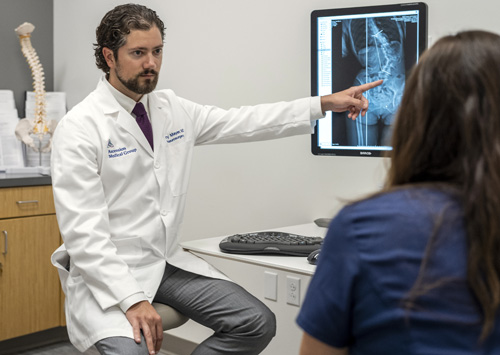Neck Pain

Overview
Like back strain, neck strain is an irritation to tendons, muscles and ligaments in the upper back and neck area. Whiplash is characterized by a collection of symptoms that occur following damage to the neck, usually because of sudden extension and flexion, such as in a car accident.
Causes
Sometimes neck strain can be brought on by an abrupt movement by the neck, such as whiplash.
Symptoms
Symptoms such as neck pain may be present directly after the injury or may be delayed for several days. In addition to neck pain, other symptoms may include neck stiffness, injuries to the muscles and ligaments (myofascial injuries), headache, dizziness, abnormal sensations such as burning or prickling (paresthesias), or shoulder or back pain. In addition, some people experience cognitive, somatic, or psychological conditions such as memory loss, concentration impairment, nervousness/irritability, sleep disturbances, fatigue or depression.
Treatment
Treatment for individuals with neck strain may include pain medications, nonsteroidal anti-inflammatory drugs, antidepressants, muscle relaxants, and a cervical collar (usually worn for two to three weeks). Customized therapy with a spine-specialized therapist is essential.
Generally, the neck pain from a strain improves within a few days or weeks.
When is neck strain serious?
As with back pain, any time symptoms do not improve after three days, it's a good idea to see a spine specialist. Also, red flag symptoms like pain or numbness radiating into an arm, especially down into the fingers, are emergency symptoms and should be seen by a spine specialist within 48 hours, or you risk permanent damage.
